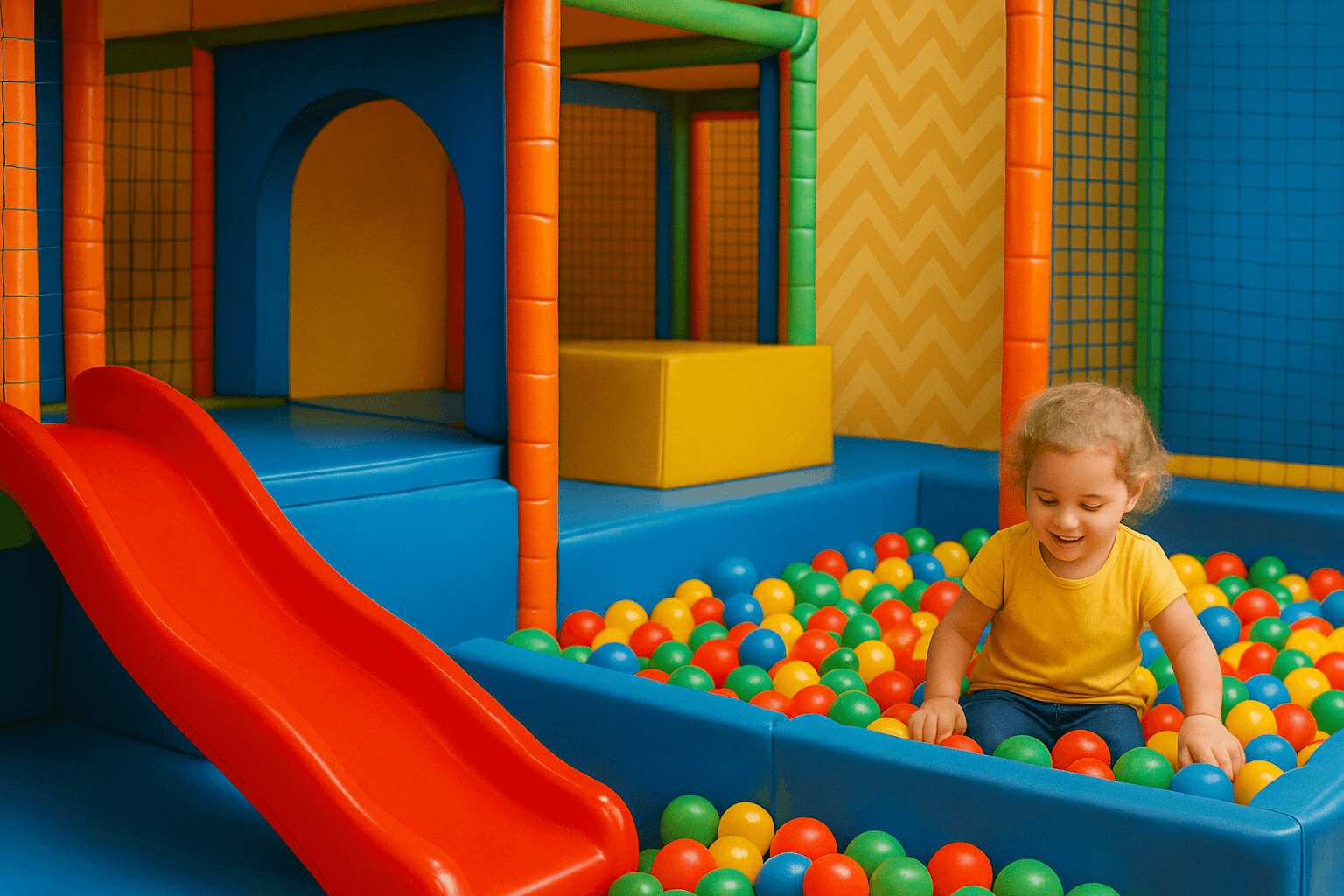Looking for a fun, supportive activity for your neurodivergent child? Discover why sensory soft play is ideal for children with autism, ADHD, or sensory needs—backed by experts.
1. What Makes Sensory Soft Play Different?
Unlike busy, noisy play centres, sensory soft play is designed with neurodivergent children in mind. Features often include:
- Reduced noise levels (no loud music or sudden sounds)
- Softer lighting (avoiding harsh fluorescents)
- Structured sessions (fewer children, calmer atmosphere)
Why It Helps:
Many neurodivergent children experience sensory sensitivities.
The National Autistic Society say “Processing everyday sensory information can be difficult for autistic people. Any of their senses may be over- or under-sensitive, or both, at different times”. This can make traditional play spaces overwhelming. Sensory soft play removes these stressors so children can focus on having fun.
2. Builds Confidence in a Safe Space
For children who struggle with motor skills (like those for eg with dyspraxia) or social anxiety, soft play offers:
- Safe, padded structures (less fear of falling)
- Clear play zones (predictable layout reduces stress)
- No pressure to socialise (children can play at their own pace)
Why It Helps:
Neurodivergent children often need more time to warm up to new environments. Soft play lets them explore without feeling rushed or judged. Researchers have considered why physical exercise improves childrens social skills. Dr Healy from the University of Delaware notes, “when designed appropriately, physical activity can provide a fun, safe setting for interacting with other children. In other words, it can offer excellent opportunities for practising social skills“.
The NHS states that play based activities helps develop general movement (motor) skills. Those children whose difficulties include making friends, thus avoiding taking part in team games could benefit from this quieter, slower, less busy environment where they can play at their own speed.
3. Encourages Play Without Overstimulation
Many neurodivergent children love movement (like climbing or jumping) but get overwhelmed by noise and crowds. Sensory soft play balances this by:
- Letting them burn energy (slides, ball pits, climbing frames)
- Providing quiet corners (for breaks if needed)
Why It Helps:
Physical activity is great for focus and mood regulation, especially for kids with ADHD or autism. A well-designed soft play centre allows this without sensory overload.
4. Where to Find Sensory Soft Play in the UK
Many UK centres now offer dedicated sensory sessions, including:
- Quiet hours (lower capacity, no music)
- Autism-friendly staff training
- Visual guides (social stories to prepare children)
Tip: Search for “SEN/D soft play [your area]” or ask local centres about adapted sessions. Check out https://softplayuk.com/ our Directory of the best Soft Play centres in the UK.
5. What Soft Play centres do it right?
Lets take a look at Snakes & Ladders in Abingdon which also has branches in Dunstable and Brentford. They say “Our carefully planned facilities are designed to play, explore, and test their limits at a pace that suits them. Every element is designed to be fun, safe, and supportive, ensuring that children feel encouraged rather than rushed. These sessions, dedicated exclusively to children aged 0–12 years with special educational needs or disabilities, provide a warm and welcoming atmosphere where families can enjoy quality time together and connect with others”. Sessions run every Wednesday from 16:15–18:15 during term time, with selected dates available during school holidays. Check directly with the branch.
17 centres that cater brilliantly…
Watch out for our next Blog which will be following up with a detailed look at soft play centres which brilliantly cater for SEN/D children.
6. Preparing for your Visit
- Before You Go:
- Preview the centre’s space via socials or their website photos with your child
- Pack noise-cancelling headphones and comfort items (fidget toys, snacks)
- Call ahead to ask about sensory tools they provide
- During the Session:
- Arrive 10-15 minutes early to explore quietly before crowds arrive
- Identify quiet zones if applicable, toilets and exit routes immediately
- Use visual timers (e.g., phone app) to prepare for transitions
- Aftercare Tip:
- Schedule downtime post-visit—the sensory input can be tiring!
Final Thoughts
If you’re looking for an activity that’s fun, supportive, and tailored to your child’s needs, sensory soft play is a fantastic option.
It helps with:
Sensory regulation
Motor skills
Confidence-building
Social interaction (when they’re ready)

